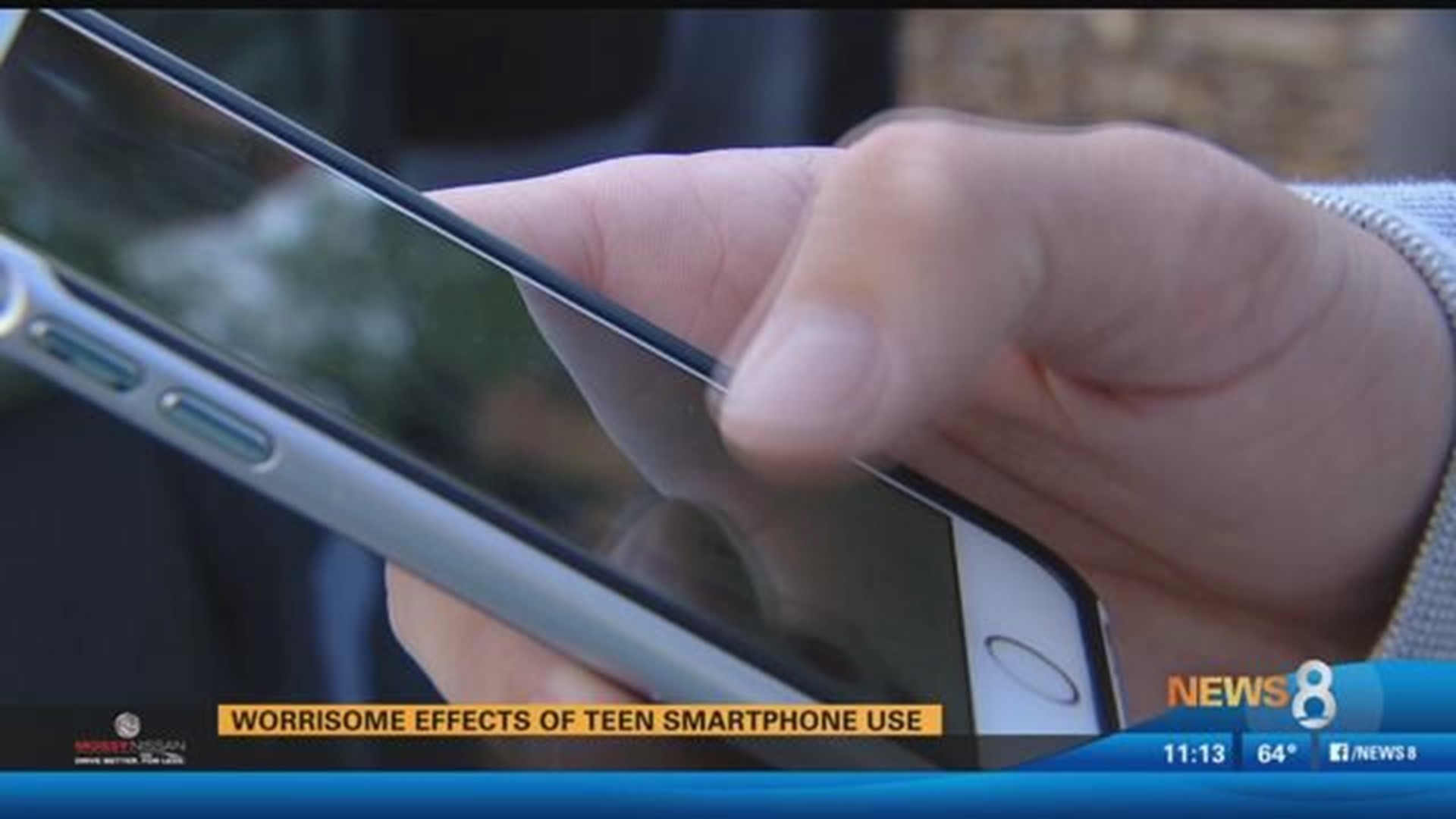SAN DIEGO, Calif. (CBS News 8) -- The average age for a child to get a cell phone is ten years old; and three out of four teenagers now own an iPhone.
As a result, psychologists are worried about the effects of the smartphone on our kids.
It’s hard to say “no” to buying your child a smartphone, especially when you see so many kids walking around school with them.
Of course, having a smart phone can be good for communication between parent and child. Other kids use their phones for school work.
“I do have study groups on Facebook or I have a messenger group with my friends from my physics class,” said 17-year-old Julia, a Westview High School student.
“I need my phone to check my grades during school and to get in contact with my teachers,” said Paymon, age 14.
Once your child has a smartphone, it’s easy for them to become addicted and pretty hard to take it away.
“I have not had my phone taken away. I've been very good at hiding it if I ever needed to,” said 15-year-old Delilah.
Around 2012, smartphone ownership in America surpassed 50 percent. About that same time, psychologists starting seeing disturbing trends in teenage personality surveys.
“More teens started to say that they felt useless. They felt like they couldn't do anything right. And these are classic signs of depression,” said Dr. Jean Twenge, a psychology professor at San Diego State University.
Dr. Twenge literally wrote the book on teenage smartphone use. Her recent publication is entitled iGen: Why Today's Super-Connected Kids Are Growing Up Less Rebellious, More Tolerant, Less Happy--and Completely Unprepared for Adulthood--and What That Means for the Rest of Us.
When Dr. Twenge noticed a dramatic increase in the teenage suicide rate around 2012 she put two and two together.
“That's when teens started spending a lot more of their time online and texting and social media; and a lot less time hanging out with their friends in person,” she said.
They're the generation that grew up with iPhones.
Experts say it’s the lack of face-to-face, social interaction that’s to blame for changes in teenage behavior.
Some of the changes are positive.
“Teens are physically safer than ever, so they're safer drivers. They are less likely to drink alcohol and the homicide rate among young people has reached all-time lows,” said Dr. Twenge.
And some of the changes are negative.
“Teens who spend more time online and texting and on social media are more likely to be unhappy and depressed,” Twenge said.
“Young people are getting to their first job without as much experience with independence. And some are finding it hard to make decisions on their own without their parents,” she said.
But there is a solution. Simply limit your child’s screen time to less than two hours a day. And yes, there's an app for that.
A variety of parental control apps are available online, including a free app called Qustodio. The apps shut down the phone when a daily time limit is reached and turn off the phone at night.
There’s also a nationwide initiative called Wait Until 8th, where parents pledge to wait until their child is in 8th grade before getting them a smartphone.

